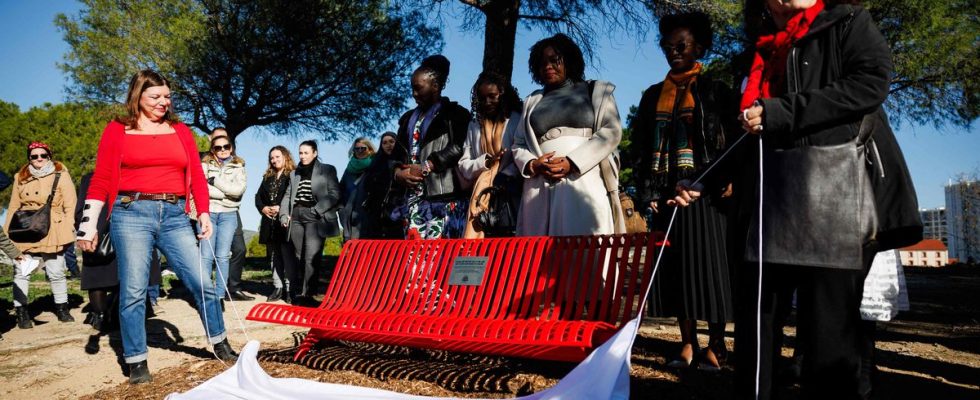“With a single red bench, create a dam”: ahead of the international day against violence against women on Saturday, five red benches were installed on Thursday in parks in Marseille, to pay tribute to the victims of feminicide.
These red benches are “the symbol of the unspeakable, of what should not be: the assassination of women by their spouse or their ex-spouse,” declared Nathalie Tessier, municipal councilor of the second largest city in France in charge of women’s rights, in the presence of a delegation of equality activists from different African countries.
“A tribute, a symbol but also a form of struggle”
“Red like that, it will get people talking” and so “we don’t forget them”: “it’s both a tribute, a symbol but it’s also a form of struggle,” added the elected official before unveil the brand new bench installed in a park in the north of the city from which the panorama of the bay of Marseille is breathtaking.
“Since 2006, there have been an average of 100 women per year who have been victims of feminicide in France,” noted Annick Karsenty, president of the Marseille committee of the Femmes solidaires association, an association behind the Bancs Rouges initiative. In France.
A Corsican initiative
The first were installed in Corsica in 2017 after “the daughter of one of our members was murdered by her partner,” she recalls. Since then, around twenty have flourished on the Mediterranean island and everywhere else in France. “Violence against women and feminicides affect all social environments, the city and the countryside,” insisted Nathalie Tessier. In France, a woman “dies every three days at the hands of her spouse or ex-spouse,” recalls the plaque affixed to the bench.
“Women must find the opportunity to protect themselves, to take shelter and above all to denounce because, in my country, women are always afraid of denouncing their tormentor and this is also one of the reasons that contribute to this continuing: (…) let’s have the courage to say stop, that’s enough,” argued Pamela Audrey Derom, founder of the Network of Elite Girls and Women for Development in the Central African Republic.
Five women committed to equality in Tanzania, Rwanda, the Central African Republic, Guinea-Bissau and the Democratic Republic of Congo are on a study visit to Marseille this week.

